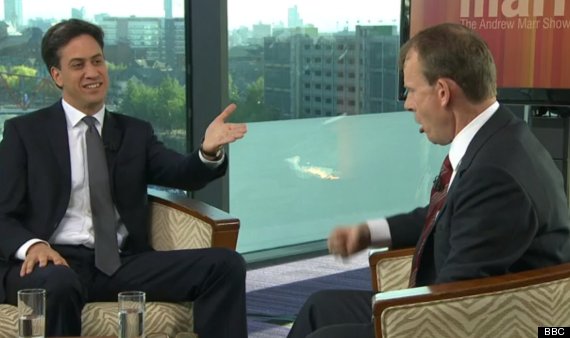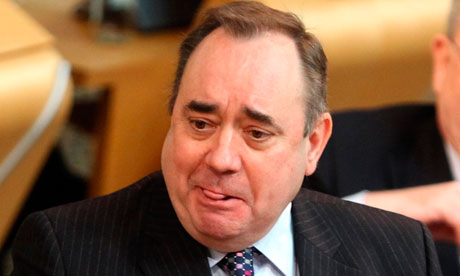 |
| foodmanufacture.co.uk |
Polling
Voters were asked the question 'Should Scotland become an independent country?'. Polling was open from 07:00 to 22:00 on Thursday 18th September, with the results announced early on the morning of Friday 19th September.Results
The ultimate result was a NO vote, with a majority of around 55%: Scotland voted against becoming an independent country.
Voter turnout was incredibly high: 97% of those eligible to vote registered to do so, and turnout was 84.59%. This was the highest turnout for any vote since the 1951 General Election. The number of rejected ballots was also very low, at only 3,429.
The NO vote received 2,001,926 votes (55.30%), while the YES vote received 1,617,989 votes (44.70%).
Four councils voted with a YES majority:
- Dundee City (YES 57.35%)
- Glasgow (YES 53.49%)
- North Lanarkshire (YES 51.3%)
- West Dunbartonshire (YES 53.9%)
Reaction
British Prime Minister David Cameron said that 'the vote settles [the] will of the Scottish people' and that he was 'delighted'.
Scottish First Minister Alex Salmond said that he 'accepts' the verdict of the electorate, despite being somewhat defiant and inflammatory in his speech following the results: he said that Scotland would remain part of the United Kingdom 'for now'.
Deputy Leader of the Scottish National Party Nicola Sturgeon said she was 'deeply disappointed' with the results.
Mr. Cameron also got himself into some trouble and was accused of 'gossiping' when he was overheard talking to ex-New York Mayor Michael Bloomberg about the Queen's reaction to the results. He claimed that she 'purred' and had 'never heard someone so happy' at the outcome of the vote.
 |
| thetimes.co.uk |
What now?
The West Lothian Question
The West Lothian Question is a delicate matter. Currently, Scottish MPs can vote on matters which only affect England, but English MPs cannot vote on matters which only affect Scotland: the West Lothian Question asks whether this should be changed to allow English MPs to vote on Scottish affairs, or to revoke these particular powers from Scottish MPs altogether.
To me, this seems like a matter of basic fairness - the system should be a two-way street. It doesn't seem just that Scottish MPs can vote on affairs which do not affect them, but English MPs cannot do the same.
Scottish devolution - Labour Party
Following the referendum results, all three of the major political parties (Conservative, Labour and Liberal Democrat) agreed that further devolution of powers to Holyrood must occur.
Leader of the Labour Party, Ed Miliband, has said 'we're going to deliver [on Scottish devolution]: no ifs, no buts' and that he will 'keep the promise [he] made in the joint declaration of the party leaders'.
 |
| huffingtonpost.co.uk |
Scottish devolution - Downing Street
Prime Minister David Cameron is set to outline plans for Scotland to have draft legislation published on its spending, tax and welfare by January 2015.
With regard to the West Lothian Question, on 19th September, David Cameron announced plans to retract the powers allowing 59 Scottish MPs to vote on 'England-only' legislation, such as education and health.
Scottish devolution - Wales
Following the result from Scotland, there has been talk of more powers for Wales and their own devolved assembly.
It seems that there is no significant appetite for independence in Wales, but there is recognition of the fact that Wales is deserving of more devolution powers.
On this matter, David Cameron has said: 'In Wales, there are plans to give the Welsh government and the assembly more powers and I want Wales to be at the heart of the debate on how to make our United Kingdom work for all our nations.'
Prior to this, Mr. Cameron had said: 'It is time for our United Kingdom to come together and to move forward. A vital part of that will be a balanced settlement - fair to people in Scotland, and importantly to everyone in England, Wales and Northern Ireland as well.
Deputy Prime Minister Nick Clegg added that the Scottish referendum 'marks not only a new chapter for Scotland within the UK but also wider constitutional reform across the Union.'
The Scottish National Party
Following the results of the referendum, Alex Salmond announced that he would be standing down as Leader of the SNP.
Deputy Leader of the SNP Nicola Sturgeon has launched her bid to take over leadership of the party and the post of First Minister of Scotland, to replace Mr. Salmond.
Ms. Sturgeon has also expressed that she is willing to work with the Smith commission to boost Holyrood's devolved powers.
Despite the NO vote, it is highly unlikely that the matter of Scottish independence will ever be dropped. It is possible that in a few years, the YES camp will regroup and call another referendum.
Mr. Salmond proved himself to be unpopular with many female voters in Scotland, so perhaps Ms. Sturgeon may sway female electorate in a favourable manner if another referendum on Scottish independence was called in the future.
When speaking in Glasgow, Ms. Sturgeon said she was 'more convinced than ever' that Scotland would become independent one day.
 |
| pressandjournal.co.uk |
Personally, I think it would be not only a crying shame if Scotland parted from the United Kingdom, but also a horrible mistake, with wholly negative effects for Scotland and the United Kingdom it leaves behind.
How will Scotland's future pan out? Only time will tell.


